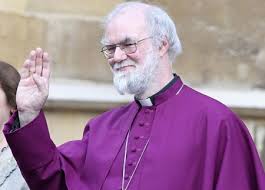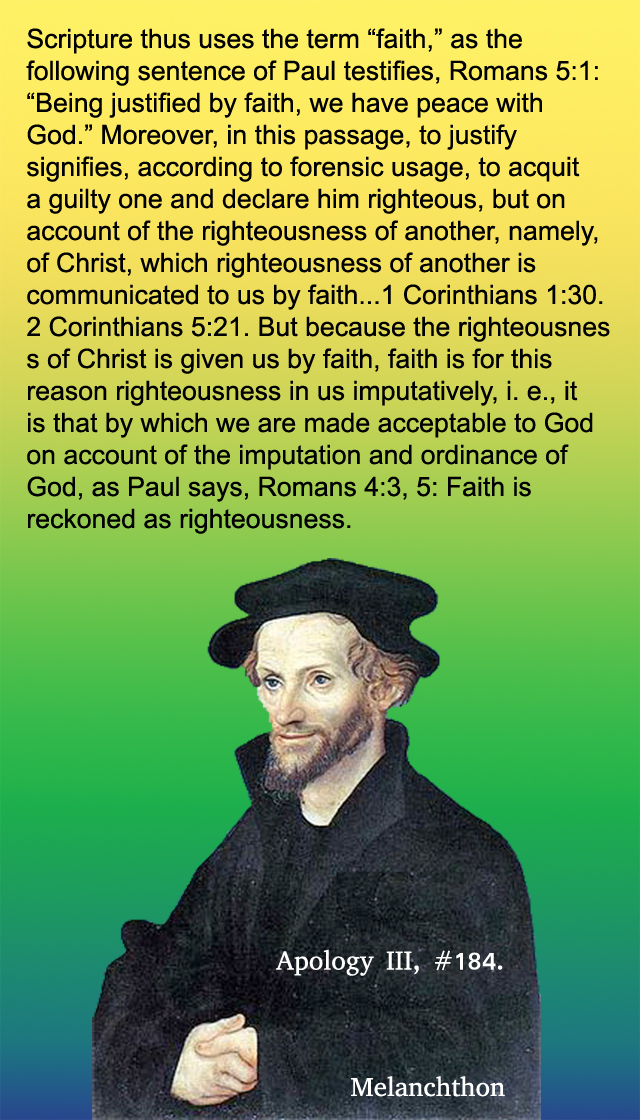 |
| Rowan Williams, Lavender Mafia |
VirtueOnline - News - Exclusives - ABC RESIGNS: It is the end of an embarrassing tenure of failed leadership:
From the moment he took office, Dr. Rowan Williams' tenure as Archbishop of Canterbury was marked by uncertainty, controversy and unacceptable compromises to global orthodox Anglicans.
When his book The Body's Grace revealed his stand on homosexuality, evangelical Anglicans in the Global South and West were unhappy. They immediately distanced themselves from his remarks despite his promise that his private views would not interfere or override the Anglican Communion's public position on such unbiblical, proscribed behavior.
For almost a decade it has been a rocky, quarrelsome road for Dr. Williams, culminating in one third of his archbishops and bishops failing to show up at Lambeth 2008. A third of his African, Southern Cone and Asian bishops failed to show up in Dublin last year when the world's Anglican Archbishops met. It was billed as a "crisis summit". As the majority of orthodox Anglican Primates failed to show, it was not a summit and a crisis was averted.
Middle East Archbishop Mouneer Anis, a no show Primate, said the meeting had been "cooked and precooked" with no outcome that was not already a forgone conclusion. Decisions made at previous primates' meetings were not acted upon and orthodox primates no longer allowed Dr. Rowan Williams to play shuttle diplomacy between the two groups, both of whom have very different gospels. The "big issues" were quickly swept under the carpet.
Prophetically true.
In Dromantine in 2005, Williams faced excoriation from both sides. He was accused of being weak and ineffectual by then US Presiding Bishop Frank Griswold for not standing up to Nigerian Primate Peter Akinola over homosexuality, while the Global South Primates continued their distancing from Dr. Williams. Relationships became so estranged that the Primates would not take Eucharist together.
Over the years whenever the words "Anglican Communion" appeared, the press immediately followed it with words like "embattled", "crisis" or "schism". It became an all too familiar theme.
Such public embarrassments have only been heightened with the pending consecration of women bishops in the Church of England, (even though there are women bishops in the US and Canada) and an Anglican Covenant, which is striking out across the globe in one Anglican province after another. US Presiding Bishop Jefferts Schori is on record as saying that it is "past its shelf life."
Williams has invested much personal authority in these issues, but has suffered embarrassment in both.
He put forward a compromise on women bishops to staunch the flow of Anglo-Catholics out of the Church of England and to keep traditionalists from taking up an offer of a personal Ordinariate from Pope Benedict to convert to the Roman Catholic Church.
His compromise on women bishops is doomed to fail as the synod will vote for women bishops after the dioceses and parishes, overwhelmingly said "yes". Traditionalists feel betrayed.
The Covenant too, seems headed for a fall. Church of England dioceses are at the moment voting on the Covenant, an initiative put forward by Williams in an attempt to prevent disputes between churches in North America and Africa over homosexual bishops and same-sex unions. But dioceses look set to vote it down.
Williams has warned that the Anglican Communion faces a "piece-by-piece dissolution" if member churches fail to avoid actions that upset others. Many believe that his failure to act or to offer a definitive word on pressing moral issues has contributed to the dissolution.
Williams gave no reason for his stepping down, but his tenure has come during some of the church's most turbulent times. In Sept. of 2011, it was reported in the Telegraph that Williams would step down before the year's end. He will continue to carry out all the duties and responsibilities of the Archbishop of Canterbury, both for the Church of England and the Anglican Communion, until the end of the year.
Dr. Williams' long struggle to prevent a schism over women and gay bishops and same-sex unions has been a high wire act that has no resolution. Orthodox Anglicans in the West and the vast majority of the Global South are deeply entrenched in Scripture's prohibition of any form of sexual expression outside of marriage between a man and a woman, while Western liberal provinces embrace pansexuality with first a homosexual and then a lesbian bishop consecrated in The Episcopal Church.
Williams believed he could not discipline The Episcopal Church, but hoped that Section IV of the Covenant might offer a way forward with those provinces who stepped over the line. However Williams was more anxious and concerned about what he perceived were cross-border violations than he was about human sexual behavior.
Another factor that undoubtedly figured in his resignation is the rise of the Global South and the formation of GAFCON and Fellowship of Confessing Anglicans (FCA) along with the Jerusalem Declaration. This declaration signaled a whole new reality for the Anglican Communion and came just weeks before the 2008 Lambeth Conference. These Anglican leaders representing a clear majority of the world's practicing Anglicans addressed the crisis gripping the Anglican Communion over scriptural authority. It called for the creation of a new council of primates overseeing a volunteer fellowship committed to mission and biblical Anglicanism as well as a new structure of accountability based on the Jerusalem Declaration. It also signaled the move of most of the world's practicing Anglicans into a post-colonial reality, where the Archbishop of Canterbury is recognized for his historic role, but not as the only arbiter of what it means to be Anglican.
That was a slap in the face and a humiliating moment for Williams who no doubt saw it as a schismatic statement that he could not control and a further diminishment of his authority as the Communion's titular head.
Next month the six Anglican archbishops who form GAFCON's primates' council will meet in London to continue talks on the deteriorating situation in the Anglican Communion. They will meet with FCA leaders and turn up the heat on Dr. Williams.
Restive Evangelicals are also making it difficult for Williams to remain in office. The recent formation of the Anglican Mission in England (AMIE) - a new mission initiative to revive Anglicanism in England - must have seemed like another peg in the new tent of Anglicanism that Williams could not control even though AMIE's leaders said they intended to remain within the Church of England.
Now, at the age of 61, some nine years before he needed to have officially retired, he is taking an appointment as Master of Magdalene College, a medieval appointment that is largely ceremonial. He previously taught theology at Cambridge and Oxford universities. Magdalene founded in 1428 remains, despite a 20th-century expansion, one of the smaller colleges within Cambridge University, numbering some 300 undergraduates.
"It has been an immense privilege to serve as Archbishop of Canterbury over the past decade, and moving on has not been an easy decision," he said in a statement. Maybe, but one should not be fooled into believing that by staying he held a winning card hand. He didn't. There was no ace up his sleeve. He faced opprobrium from people like Colin Coward and Changing Attitude every time he prevaricated over homosexuality, and the liberal broad sheets in the UK ripped him apart for his repeated waffling. He got no relief from Akinola's successor, Archbishop Nicholas Okoh who seems to be a clone of the former Nigerian Archbishop and just as steadfast on human sexuality issues.
The bookmakers' favorite to replace him is the Church of England's second most senior cleric, the Archbishop of York, John Sentamu, though there are some who are against his outspoken views at a sensitive time for the church. Another in the running is the Bishop of London, Richard Chartres, a friend of Prince Charles. But his chances may have suffered over St Paul's Cathedral's botched handling of a four-month camp by the anti-capitalist movement Occupy London on its doorstep. A VOL reader in London believes the choice will be a total outsider, though he will lack the necessary gravitas for the job and have very little international standing. If he is a liberal, it will only ratchet up the continuing and ongoing realignment now firmly underway. If he is an evangelical, he will need a spine of steel to stand up to the Country's growing and very strident homosexual and Islamist lobby especially in the Church of England.
Either way, the Church of England and the Anglican Communion will continue in turmoil if clear stands are not taken on pressing moral and theological issues. The truth is there may be no stopping the decline.
Whichever way it goes one thing is certain, there will be no stopping the rise of the Global South with its millions of evangelical Anglicans and the slow but inevitable death of Western Anglicanism if it does not repent of its sin. And that it would seem, is not going to happen.
American Anglican Council spokesman Canon Phil Ashey talks about the resignation of Dr. Williams. You can view it here - Anglican Perspective: Canterbury to Resign http://www.americananglican.org/anglican-perspective-canterbury-to-resign
'via Blog this'





















.jpg)













